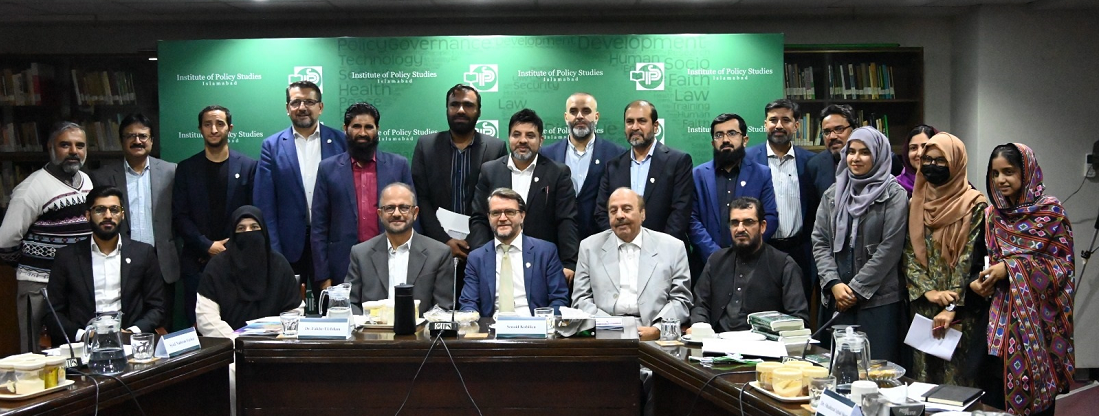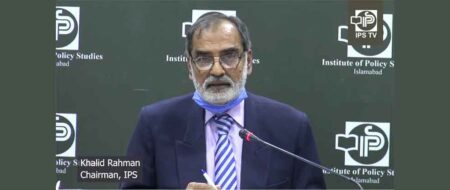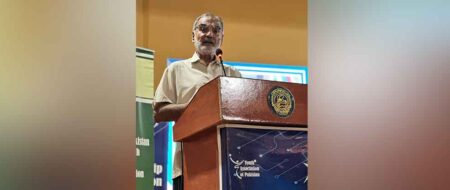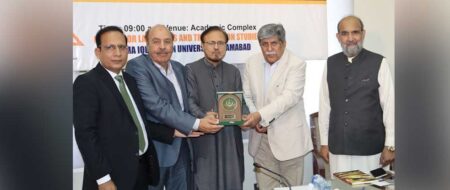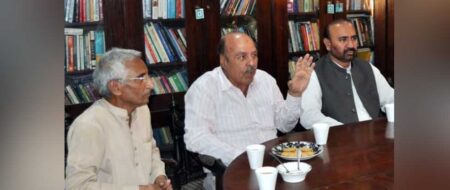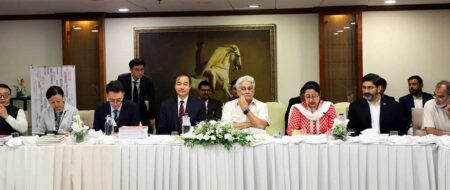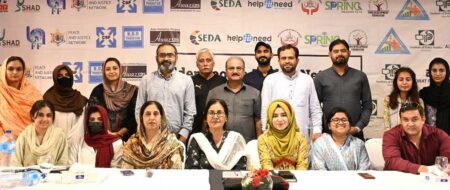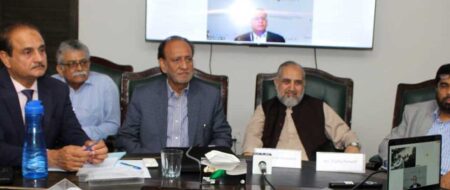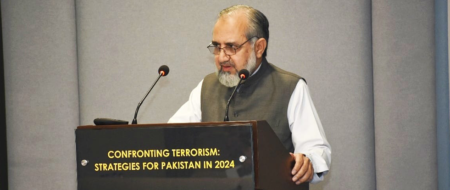Delegation of Muslim Dialogue Network, Norway, Visits IPS
Muslim minorities in West need coordinated responses to counteract negative portrayal
In today’s highly interconnected globalized world, the actions of fringe elements within a society can have far-reaching consequences for that community extending beyond geographical boundaries. Just like an incident in Europe, though perpetrated by an individual, can trigger significant reactions in places as distant as Pakistan, the actions of a small group in Pakistan may be misrepresented by the West, leading to a perception that the entire Pakistani society has a radical and violent mindset.
In light of this, it becomes imperative for Muslim societies to cultivate better organization and cohesion. Similarly, Muslim minorities in Western and other countries need more connected and coordinated responses along with improved linkages within themselves to obtain firsthand information besides cultivating organized representation.
By doing so, communities can effectively counteract the negative portrayals stemming from the actions of a few, promoting a more accurate understanding of the diverse nature of societies and Islam across the globe. This approach not only enhances internal unity but also contributes to a more harmonious global discourse.
This was observed during an interactive discussion on the ‘Role and Status of Religious Minorities in Pakistan,’ with the Muslim Dialogue Network (MDN), an umbrella organization for Islamic religious communities in Norway, organized at IPS on November 13, 2023.
The delegation included Senaid Kobilica, chairman of MDN, Arshad Jamil, board member, MDN, Islamic Cultural Centre (ICC), Sajid Raheem, manager, MDN, Faruk Terzic, a Bosnian imam, Saleemullah Aliva, imam, ICC, Soliman Kandrouch, board member, Rahma Islamic Association, Ikhlaq Ahmad, operational manager, ICC, Femi Baftii, representative, Albanian mosque, and Mian Waqas Waheed, coordinator, MDN Tour 2023.
The discussion participants also included Prof Dr Fakhr-ul-Islam, advisor research and academic outreach, IPS, Dr Aziz Ur Rehman, director, School of Law, Quaid-i-Azam University, Islamabad, Dr Taimia Sabihah, assistant professor, International Islamic University, Islamabad, Dr Riaz Ahmad Saeed, assistant professor, National University of Modern Languages (NUML), Islamabad, Dr Ghulam Hussain, assistant professor, Bahria University, Islamabad, Naufil Shahrukh, GM Operations, IPS, Syed Nadeem Farhat, research fellow, IPS.
Senaid Kobilica highlighted the intricate challenges faced by Muslims as minorities in European and Western countries, encompassing issues such as hijab, niqab, mixed marriages, and handshakes, as well as incidents like the burning of the Qur’an. These challenges have become more complex in today’s interconnected world.
The delegates underscored that Muslims living in the West have learned that to communicate their concerns effectively, they have to be politically active and socially organized as a group so that their collective voice can have a meaningful impact. This heightens the need for a common front and an organized representation of Muslim societies and institutions to fill this gap effectively with concrete evidence and collaborative efforts.
The speakers further stressed the need for Muslim societies to have coordinated responses, organized representation, and cohesive efforts, especially when promoting interfaith relations. They further asserted that Muslims must be more visible, educated, and proactive in presenting the truth and engaging with multi-level institutions. Moreover, Muslims need to be more politically active in the West and engaged in society to counter prejudice and promote understanding of Islam.
In discussing the status of religious minorities in Pakistan, there was an emphasis on the significant impact of misinformation, disinformation, and inaccurate media narratives in shaping public perceptions and global perspectives. The speakers also highlighted the insufficient interfaith engagement and interactions, leading to misunderstandings and misperceptions regarding the actual circumstances surrounding incidents involving religious minorities.
As an example, addressing the inaccurate depiction of forced religious conversions in Pakistan, it was highlighted that a high percentage of conversions involved individuals who were neither underage nor compelled in any manner. Likewise, in discussing the August 16 Jaranwala incident involving the ransacking of churches, speakers noted that factors such as Islamophobia, disinformation, and the role of media contributed to the development and dissemination of a false narrative regarding religious intolerance in Pakistan.
The speakers emphasized the presence of inherent issues requiring attention but stressed the importance of viewing matters from the proper perspective. They observed that confronting such misconceptions entails raising awareness about the realities behind such incidents among the general public through organized efforts.
Earlier, Dr Fakhr-ul-Islam introduced IPS, its mandate, and its research domains to the delegates.


